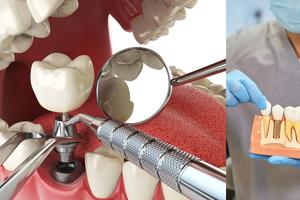Can Having Sex Postpone Your Period? The Truth About Sex and Menstruation

Key Takeaways
Essential insights to remember
Sex itself does not delay your period, but pregnancy resulting from sex will stop periods.
The menstrual cycle is controlled by reproductive hormones that aren't significantly affected by sexual activity.
Normal menstrual cycles can vary by up to 7 days, so slight variations from month to month are completely normal.
Stress, weight changes, exercise, illness, and hormonal contraception are common factors that actually can delay periods.
If you're sexually active and your period is more than a week late, taking a pregnancy test is advisable.
Introduction
😕 Have you ever noticed your period arriving later than expected after having sex and wondered if there might be a connection? You're not alone. The relationship between sexual activity and menstrual timing is a topic shrouded in myths and misconceptions that has puzzled many people with periods.
Whether you've recently become sexually active or have been sexually active for years, questions about how intercourse might affect your menstrual cycle are both common and valid. After all, understanding your body's patterns is crucial for reproductive health awareness.
In this comprehensive guide, we'll debunk myths, explore the science behind your menstrual cycle, and provide evidence-based answers about whether sexual activity can truly postpone your period. We'll examine what actually causes menstrual delays and when you might need to consult a healthcare provider.
The Relationship Between Sex and Your Menstrual Cycle
To understand whether sex can affect your period, we first need to comprehend how the menstrual cycle functions. Your menstrual cycle is an intricate dance of hormones orchestrated primarily by your brain and reproductive organs.
How Your Menstrual Cycle Works
🔄 The menstrual cycle consists of three main phases:
- Follicular phase: Beginning on the first day of your period, this phase lasts approximately 14-21 days. During this time, follicle-stimulating hormone (FSH) promotes egg follicle growth in your ovaries. As follicles develop, they produce estrogen, signaling your uterine lining to thicken.
- Ovulation phase: Occurring mid-cycle (about 10-14 days before your next period), this phase is triggered by luteinizing hormone (LH), which causes the release of a mature egg. The egg then travels through the fallopian tubes toward the uterus.
- Luteal phase: Following ovulation, this phase typically lasts 10-16 days. Progesterone levels rise, further thickening the uterine lining in preparation for possible pregnancy. If pregnancy doesn't occur, progesterone and estrogen levels drop, leading to the shedding of the uterine lining—your period.
The Hormonal Control Center
Your menstrual cycle is regulated by the hypothalamic-pituitary-gonadal axis—a communication network between your brain and reproductive organs. The hypothalamus releases gonadotropin-releasing hormone (GnRH), which signals the pituitary gland to produce FSH and LH, which in turn stimulate the ovaries to produce estrogen and progesterone.
This complex hormonal cascade operates independently of sexual activity, which is why sex alone doesn't directly influence the timing of your period.
Does Sex Actually Delay Your Period?
🔍 Let's address the central question directly: Can having sex postpone your period?
The Scientific Verdict
The short answer is no—having sex itself does not delay your period. The menstrual cycle is governed by hormonal fluctuations that aren't significantly affected by sexual activity alone.
According to reproductive health experts, there's only one way that sex can delay your period, and that's if it results in pregnancy. When pregnancy occurs, the body produces human chorionic gonadotropin (hCG), which maintains the uterine lining instead of shedding it, thus pausing your menstrual cycle.
Dispelling Common Myths
Many misconceptions exist about sex and periods:
- Myth: Losing your virginity changes your period timing.
- Truth: Becoming sexually active doesn't alter your menstrual cycle.
- Myth: Having sex right before your expected period will delay it.
- Truth: The timing of sex relative to your cycle has no direct impact on when your period arrives.
- Myth: Sperm can cause hormonal changes that delay periods.
- Truth: While sperm can fertilize an egg (leading to pregnancy), it doesn't affect hormone levels that control menstruation.
Normal Cycle Variations
It's important to recognize that menstrual cycles naturally vary. A "normal" cycle can range from 24 to 38 days, with the average being 28 days. Variations of up to 7 days between cycles are completely normal and don't necessarily indicate any problem.
This natural variation might explain why some people notice their period arriving later than expected after sexual activity—the delay is coincidental rather than causative.
How Pregnancy From Sex Can Delay Your Period
🤰 As mentioned, pregnancy is the only way sexual activity can truly postpone your period. Let's explore this connection in more detail.
Understanding Conception
During your fertile window (typically the days near ovulation), sperm can live in the reproductive tract for up to 5 days waiting for an egg. If fertilization occurs, the fertilized egg (zygote) travels to the uterus and implants in the uterine lining.
Once implantation happens, your body begins producing hCG, which maintains the uterine lining instead of shedding it. This is why pregnancy stops menstruation—your body is preserving the uterine environment for the developing embryo.
Signs of Pregnancy vs. Late Period
If your period is late and you've had unprotected sex (or experienced contraceptive failure), pregnancy is a possibility. Early pregnancy symptoms can include:
- Missed period
- Breast tenderness
- Fatigue
- Nausea or vomiting
- Frequent urination
- Mood changes
- Implantation bleeding (light spotting)
However, many of these symptoms can also be caused by stress, illness, or hormonal fluctuations unrelated to pregnancy.
When to Take a Pregnancy Test
For the most accurate results, take a pregnancy test:
- After missing your period
- First thing in the morning when urine is most concentrated
- 10-14 days after unprotected sex (though earlier testing may yield false negatives)
Home pregnancy tests detect hCG in urine and are generally reliable when used correctly. If you receive a negative result but your period remains absent, consider retesting in a few days or consulting a healthcare provider.
Hormonal Effects of Sexual Activity
💓 While sex doesn't directly delay periods, sexual activity does trigger certain hormonal responses in the body. Let's examine these effects and whether they might indirectly influence your menstrual cycle.
Hormones Released During Sexual Activity
Sexual arousal and orgasm trigger the release of several hormones:
- Oxytocin: Often called the "love hormone," oxytocin promotes bonding and can cause uterine contractions.
- Endorphins: Natural painkillers that create feelings of pleasure and well-being.
- Dopamine: Associated with pleasure and reward.
- Serotonin: Contributes to feelings of happiness and relaxation.
Can These Hormones Affect Your Period?
According to Dr. Molly O'Shea, "It isn't sex exactly that can affect the timing of your period, but rather arousal since that causes a surge in hormones. The mechanics of sex don't change anything, but if you are aroused (even if you don't have an orgasm) it causes your hormones to get all jazzed up which can temporarily delay your period."
However, this effect is typically minimal—perhaps delaying your period by a day at most—and doesn't significantly disrupt your overall cycle pattern.
The Stress-Sex Connection
Interestingly, regular sexual activity might actually help regulate your cycle indirectly. Some studies suggest that regular sex (at least once a week) may make periods more predictable by reducing stress.
True Factors That Can Delay Your Period
🕒 If sex isn't delaying your period, what is? Let's explore the genuine culprits behind menstrual delays.
Stress and Emotional Factors
Stress is perhaps the most common cause of delayed periods. When you're stressed, your body releases cortisol, which can suppress reproductive hormones and disrupt your menstrual cycle.
Sources of stress that might affect your period include:
- Work or academic pressure
- Relationship issues
- Financial concerns
- Major life changes
- Grief or loss
Weight Changes and Exercise
Your body weight and activity level significantly impact your hormonal balance:
- Rapid weight loss: Can reduce estrogen production, potentially causing missed periods.
- Very low body weight: May lead to amenorrhea (absence of periods) as the body lacks sufficient fat to produce necessary hormones.
- Excessive exercise: Intense athletic training can suppress reproductive hormones, a condition known as exercise-induced amenorrhea.
Diet and Nutrition
Nutritional factors that can delay your period include:
- Severe caloric restriction
- Nutrient deficiencies (particularly iron, vitamin D, and B vitamins)
- Eating disorders such as anorexia nervosa or bulimia
Medical Conditions
Several health conditions can cause irregular or delayed periods:
Hormonal Contraception
Birth control methods that can affect your period include:
- Hormonal IUDs
- Birth control pills
- Contraceptive injections
- Implants
- Patches
Some forms of hormonal contraception may lead to lighter periods, irregular bleeding, or no periods at all—an effect that's generally considered safe and often desirable for many users.
Medications and Treatments
Various medications can affect your cycle:
- Antidepressants
- Antipsychotics
- Blood pressure medications
- Chemotherapy
- Corticosteroids
- Anti-seizure medications
Travel and Schedule Changes
Disruptions to your routine can affect your cycle by impacting your body's circadian rhythm:
- Jet lag
- Shift work
- Major time zone changes
- Sleep disruptions
Tracking Your Cycle: How to Know When Your Period is Actually "Late"
📊 Understanding what's normal for your personal cycle helps you identify genuine irregularities.
What's Considered "Normal"?
A typical menstrual cycle ranges from 24 to 38 days, with menstruation lasting approximately 3-7 days. However, everyone's "normal" is different. Some people have consistently shorter or longer cycles, which is perfectly fine as long as it's regular for them.
Effective Cycle Tracking
Tracking your menstrual cycle helps you:
- Identify patterns and predict future periods
- Recognize when something is truly amiss
- Provide valuable information to healthcare providers if concerns arise
You can track your cycle through:
- Calendar notations
- Mobile apps designed for period tracking
- Basal body temperature measurements
- Cervical mucus observations
- Symptoms journaling
When Is Your Period Officially "Late"?
For those with regular cycles, a period is generally considered:
- Late: When it's 5 or more days overdue based on your typical cycle length
- Missed: When there's no menstruation for over 6 weeks
Remember that occasional variation is normal. About 46% of women experience cycle length variations of at least 7 days from month to month.
When to Consult a Healthcare Provider
🩺 While some cycle variations are normal, others warrant medical attention.
Signs That Require Medical Evaluation
Seek medical advice if you experience:
- No period for more than 90 days (and you're not pregnant, breastfeeding, or on hormonal contraception that suppresses periods)
- Periods that suddenly become irregular after being regular
- Bleeding between periods
- Extremely heavy bleeding (soaking through a pad/tampon every hour for several hours)
- Severe pain with periods that interferes with daily activities
- Periods lasting longer than 7 days
Discussing Cycle Irregularities With Your Provider
When consulting your healthcare provider:
- Bring your cycle tracking information
- Be prepared to discuss your sexual activity
- Mention any medications or supplements you take
- Share information about stress, lifestyle changes, or weight fluctuations
- Describe any other symptoms you've noticed
Possible Tests and Evaluations
Your provider might recommend:
- Pregnancy test
- Blood tests to check hormone levels
- Pelvic exam
- Ultrasound
- Endometrial biopsy (in certain cases)
Early intervention for menstrual irregularities can help identify and address underlying conditions, preventing potential complications.
Conclusion
🌟 The connection between sexual activity and period timing is largely misunderstood. While the myth that sex can postpone your period persists, the scientific reality is that sexual activity itself doesn't delay menstruation—unless it results in pregnancy.
Your menstrual cycle is controlled by complex hormonal processes that operate independently of sexual activity. The hormones released during sex and arousal might have minimal, temporary effects on cycle timing, but they don't significantly alter your menstrual pattern.
What does affect your period? Stress, weight changes, medical conditions, medications, and lifestyle factors are the true culprits behind most menstrual delays. Understanding these influences empowers you to better manage your reproductive health.
If you're sexually active and your period is significantly late, consider taking a pregnancy test. If pregnancy isn't the cause and your periods are consistently irregular, consulting a healthcare provider can help identify any underlying issues.
Remember that occasional cycle variations are entirely normal. By tracking your periods and staying attuned to your body's patterns, you'll be better equipped to recognize when something truly requires attention.





